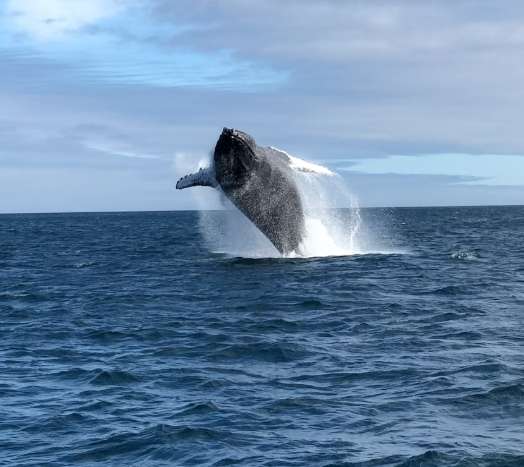Presidential Meeting Held in the Galapagos Islands.
Ecuador and Colombia Forge Stronger Ties in Galapagos Summit Focused on Environmental Protection, Border Security, and Economic Cooperation
Presidents Daniel Noboa of Ecuador and Gustavo Petro of Colombia convened at the historic Charles Darwin Research Station in the Galapagos Islands on Sunday, marking a significant step in strengthening bilateral relations. The summit centered on critical shared concerns, including environmental protection, particularly in the face of climate change, enhanced border cooperation, and collaborative strategies to combat drug trafficking and foster economic integration. The Galapagos Islands, renowned for their unique biodiversity and vital role in ecological research, provided a symbolic backdrop for the discussions, underscoring the two nations’ commitment to environmental stewardship and sustainable development. The meeting served as a platform for concrete proposals and the establishment of a joint framework for future collaboration.
Central to the discussions was the shared commitment to environmental protection, particularly in the context of combating climate change. The Galapagos Islands, a UNESCO World Heritage site and a living laboratory for evolutionary science, served as a potent reminder of the urgent need for international cooperation to address global environmental challenges. Both leaders acknowledged the importance of preserving the region’s natural wealth and discussed collaborative efforts to mitigate the impacts of climate change. This shared focus on environmental sustainability reflects a growing understanding of the interconnectedness of environmental health and regional stability.
The presidents also addressed critical security concerns, particularly along the shared border demarcated by the Mataje River. This region, plagued by the activities of organized crime groups and drug trafficking, requires a concerted bilateral approach to enhance security and promote sustainable development. President Noboa expressed gratitude for Colombia’s support during challenging times, referencing the provision of electricity during periods of drought, highlighting the importance of mutual assistance and resource sharing. Both leaders agreed to establish a working group to assess the situation along the Mataje River and develop concrete initiatives to improve security, promote economic opportunities, and enhance the well-being of the border communities. This collaborative approach seeks to transform the Mataje River area from a hub of illicit activities into a corridor for legitimate economic exchange and cross-border cooperation.
Economic cooperation emerged as a key theme of the summit, with both leaders exploring avenues for deeper economic integration and mutual benefit. President Petro emphasized the potential for collaborative efforts in key agricultural sectors, such as coffee and cocoa production, to bolster economic growth and strengthen the fight against drug trafficking. By leveraging shared strengths and fostering economic interdependence, the two nations aim to create a more resilient and prosperous region, reducing the vulnerability to illicit economies. This focus on economic development recognizes the importance of providing alternative livelihoods and economic opportunities as a crucial element in combating drug trafficking and promoting long-term stability.
The meeting concluded with a reaffirmation of the shared commitment to strengthen bilateral relations and work together to address critical challenges facing both nations. The establishment of a joint working group to focus on border development and security signifies a concrete step towards translating the summit’s discussions into tangible action. This collaborative approach underscores the recognition that regional challenges require collective solutions and that strengthened partnerships are essential for achieving shared goals. The summit in the Galapagos served as a powerful symbol of the growing bond between Ecuador and Colombia and their shared vision for a more secure, prosperous, and environmentally sustainable future.
The summit’s location in the Galapagos Islands underscored the symbolic importance of the meeting and the shared commitment to environmental protection. The islands, known for their unique biodiversity and fragile ecosystem, served as a powerful reminder of the urgent need for international cooperation to address global environmental challenges. The choice of venue also highlighted the importance of scientific research and collaboration in understanding and mitigating the impacts of climate change. The Charles Darwin Research Station, a hub for scientific inquiry and conservation efforts, provided a fitting backdrop for the discussions, symbolizing the two nations’ dedication to scientific advancement and environmental stewardship.
Beyond the immediate outcomes of the summit, the meeting represents a broader trend of increasing cooperation and integration between Ecuador and Colombia. The two nations share a long border and face common challenges related to security, economic development, and environmental protection. By working together, they can leverage their respective strengths and resources to achieve greater regional stability and prosperity. The Galapagos summit serves as a testament to the growing recognition of the importance of bilateral partnerships in addressing complex challenges and building a more secure and sustainable future for both nations.
Share this content:












Post Comment